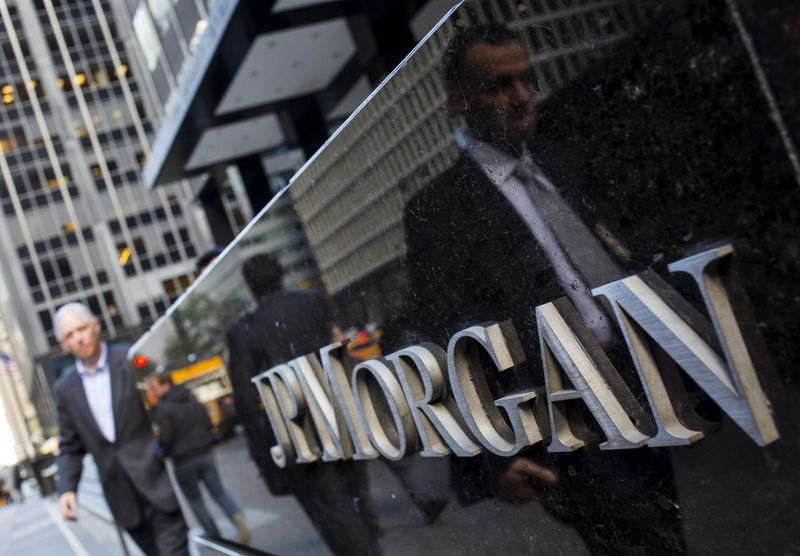(Bloomberg) -- Wall Street banks are poised to announce a deluge of dividend increases and stock buybacks after the Federal Reserve’s stress tests showed the industry built up a stockpile of cash during the pandemic.
Lenders can announce their plans for distributing capital after the market closes on June 28, and the industry’s strong results mean payouts may be the largest ever following the Fed’s annual exams. Early estimates indicate the six biggest U.S. banks, including JPMorgan Chase & Co. (NYSE:JPM), Bank of America Corp (NYSE:BAC). and Citigroup Inc (NYSE:C)., could return more than $140 billion to shareholders.
The passing marks -- announced Thursday by the Fed -- mean firms are officially free from restrictions that the regulator put on dividend payments and share repurchases last year when Covid-19 was ravaging the economy. The banks’ solid showing also signals that the industry has grown much more comfortable with the exercises, which used to trigger anxiety and frustration across Wall Street.
In the Fed’s invented economic pain in this year’s exams, the biggest U.S. banks saw their aggregate common equity tier 1 capital ratio fall to a minimum of 10.6%, which is still more than twice the 4.5% minimum the agency demands. Goldman Sachs Group Inc (NYSE:GS). was -- as usual -- among the megabanks closest to the edge, with 8.8%. Wells Fargo (NYSE:WFC) & Co. joined it at that level.
“Over the past year, the Federal Reserve has run three stress tests with several different hypothetical recessions and all have confirmed that the banking system is strongly positioned to support the ongoing recovery,” Fed Vice Chairman for Supervision Randal Quarles said in a statement.
Banks rose in postmarket trading with Bank of America Corp., Morgan Stanley (NYSE:MS), Wells Fargo, JPMorgan, Citigroup and Goldman all gaining.
Read More: JPMorgan Leads Banks Set to Return $142 Billion to Shareholders
The hypothetical crisis envisioned in this year’s exams -- including a nearly 11% unemployment rate and the stock market tanking by more than half -- produced unique loss figures for each of the 23 lenders tested based on their differing books of business.
The banks use those numbers to assess how much capital they can afford to dole out to investors, a metric known as the stress capital buffer. Unlike in previous exams, banks don’t need the Fed to sign-off on their capital plans, as long as each lender stays above its established capital minimum.
If a bank falls below its required stress capital buffer at any point in the year following the stress tests, the Fed can hit it with sanctions, including restrictions on capital distributions and bonus payments.
Even before the results were released, Wall Street lobbyists were defending the industry’s plans to boost payouts to shareholders. Kevin Fromer, president of the Financial Services Forum in Washington, argued this week that increased dividends and buybacks are “a promising sign for the economy.”
Such comments aren’t likely to impress Senator Elizabeth Warren and other progressive lawmakers. The Massachusetts Democrat has repeatedly criticized buybacks, labeling them a form of market manipulation that enriches executives. Banks should instead use their excess capital to invest in their businesses and their employees, she’s argued.
(Updates with share gains in sixth paragraph.)
©2021 Bloomberg L.P.
